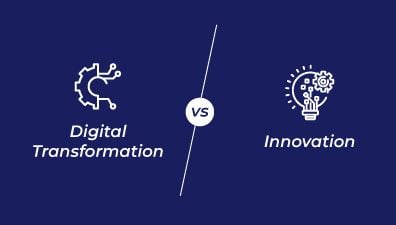Digital transformation is, no doubt, one of the key drivers of industry growth today. But since the sudden COVID-19 pandemic outbreak hit the “pause button” hard-full stop, the hospitality industry especially is losing its positions day after day.
Nevertheless, consumers always continue to demand improved solutions and unique experiences. The industry is rapidly adopting new technologies to exceed their expectations and digitize the customer journey with one-tap check-ins, digital concierge services, voice-activated devices, chatbots, smart in-room technologies, advanced analytics, virtual-assistant platforms, enhanced direct bookings, and more to come.
As new advancements advance and market disruptors arrive at their minimum amount, each industry faces a center change requirement. The hospitality industry is no exemption. Nowadays, visitors hope to have a client-driven lodging experience beginning as right on time as picking an objective and becoming familiar with facilities and property. Visitors additionally need more solace, highlights, comfort, quicker client support, new encounters, and the rundown of digital transformation in hospitality is progressing.
One of the drivers of industry development is the continuous digital transformation in hospitality industry that is in a real sense reshaping the manner in which business is finished. As customers keep on requesting a superior involvement with their business corporations, the friendliness business is quickly embracing new advancements to meet this assumption.
The majority of the client-centered highlights offered by generally huge and little lodging administrators and different chains are straightforward versus the prospects brought by bleeding-edge advancements. Along these lines, inn administrators should know about the approaching contributions of contenders and play get up to speed, or potentially pioneer the absolute most current highlights their customers will welcome and see as premium. Given this requirement for a quick change to support the fourth modern insurgency’s speed that has arrived, interest for advances that help address the difficulties in a successful and significant manner may appear to be overpowering.

Table of Contents
What is digital hospitality?
Digitization is transforming customary operational frameworks into automated ones. Digitization has been around for quite a while; for instance, when an inn goes from paper banners to separates public territories, it creates hospital digital.
Among the numerous progressions that the area is encountering, we have perceived how, because of the Covid emergency, numerous inns have executed contactless arrangements that incorporate applications for visitors, online registration, brilliant upselling, electronic locks, and chatbots. Notwithstanding these devices, there are different ideas, such as computerized reasoning and enormous information, that are now on everybody’s radar, except that not many individuals understand what they are or how they are utilized.
What is digital transformation in hospitality?
Digital transformation in hospitality is the utilization and reconciliation of various advancements taking all things together regions of the inn, systems, items, and surprisingly the actual structure to improve productivity and visitor fulfillment while tackling current and future issues.
Among the numerous progressions that the area is encountering, we have perceived how, because of the Covid emergency, numerous lodgings have carried out contactless arrangements that incorporate applications for visitors, online registration, smart upselling, electronic locks, and chatbots. Notwithstanding these devices, there are different ideas, such as human-made reasoning and significant information on everybody’s radar, except not many individuals understand what they are or how they are utilized.

The trends in digital transformation in hospitality
#1. Internet of Things (IoT): Intelligent Rooms, Beacons & Tablets
As in some other businesses today, clients expect consistent experience shifts between their home, vehicle, plane, and picked accommodation conveniences. The degree of innovation reception at each occurrence ought to be further developed — or at least comparable to what clients have at home, for example, the capacity to stream membership-based substance or control gadgets like forced air systems without moving about. Visitors hope to separate the most significant worth from what they paid for — a requesting objective in the period of market disruptors like Airbnb. Empowered by the blend of IoT and portable, lodgings are now receiving savvy highlights to in part address those assumptions for their end clients.
A ready room empowers visitors to control conveniences and request any visitor administrations through a lodging’s portable application or voice colleague application dependent on Google Home or Amazon Alexa. In shrewd rooms, forced air systems, media sets, lights, window conceals, and different conveniences are provided with super minimal IoT equipment and implanted programming that can speak with the inn application and discourse acknowledgment driven voice collaborators, permitting visitors to control key room components without any problem. The application fills in as an all-inclusive distance where everything is only a couple of clicks away. What’s more, such an application can incorporate extra highlights, such as requesting in-room administrations, talking with the staff, and getting significant data (i.e., nearby flight timetable and lodging food and diversion choices).
In the event that a lodging offers multi-room suites or manors, brilliant room applications are versatile to an assortment of formats and convenience types, guaranteeing clients can handle various conveniences in various rooms straightforwardly and spontaneously. In manors, for instance, guide innovation needs to enhance different advances that are available at more modest premises. Signals are little gadgets that can send messages to cell phones, giving route and area-based tips. For instance, guides can remind an inn application of a constant visitor area to pinpoint the specific room where a client endeavors to control the conveniences.
Bright rooms give an establishment to another neighborliness sub-pattern — hyper-personalization. The information accumulated by the whole gadget biological system will permit inn administrators to calibrate their visitor encounters and address (or even expect) explicit requests of every visitor at each corner — an essential ability in when inns need to gauge abrupt vacillations in client interest.
In addition, the two guides and tablets give another road to drive deals of visitor administrations with customized offers. For instance, Fontainebleau Miami utilizes its guide information and property the board frameworks to create early visitor registration and late-stay tailored limited time offers. While catching and continually getting to visitors’ information, each inn needs to guarantee this information is secure by making specific protection strategies and enabling visitors to erase the more significant part of the registration information.

A prominent extravagance Asian inn digital transformation in hospitality is changing its plan of action with the assistance of the most recent innovations at this very moment. One of their top-level properties has a smooth tablet in every visitor room, empowering visitors to control room conveniences (cooling, lights, windows, media focuses), talk with staff, request room administration, access to data, and then some. This cloud-based arrangement that coordinates with different frameworks has some extra advantages, including driving deals of administrations, cementing its extravagance image and administration speed through a staggering UI and UX highlight plan and all-around assembled programming, permitting the inn to study their visitors and others.
>> Must read: The benefit of digital transformation: Top 7 advantages for businesses
#2. Artificial Intelligence (AI) in the Guest Experience
Simulated intelligence arrangements with AI calculations examine enormous information to give exact evaluations across different digital transformation in hospitality industries and hazard the executive’s measurements, empowering organizations to improve their dynamic capacities altogether.
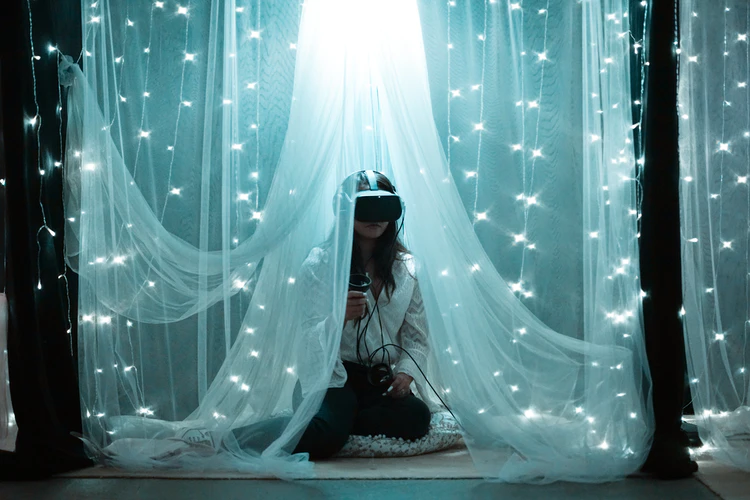
The least complicated illustration of how AI is acquiring footing in the accommodation business is the quickly expanding use of chatbots, which target improving visitors’ visits at each progression. Lodging chatbots dissect information from a wide cluster of sources (collaborations with visitors in an inn application, buy history, food inclinations, put away installment choices, spa, convenient use, and so forth) give a profoundly customized insight. The more information accessible to a chatbot’s calculations to gain from, the better is the conveyed result and chatbot’s ideas. Moreover, AI-driven chatbots have a swift reaction time: visitors can get answers to their questions quickly, as though they talk with the learned individual confronting them.
Chatbots are situated to significantly change the accommodation business’s operational spine, beginning with something as straightforward as the booking cycle and continuing to smoothing out work processes at call focuses and other lodging support units. AI (ML) calculations in chatbots will be prepared using chronicled calls with clients and their booking conduct on a lodging site, offering them the essential booking choices, the ones they are destined to utilize.
#3. Augmented & Virtual Reality (AR/VR)
Regardless, not all photographs of an inn’s outsides and rooms recount the whole tale about the lodging to its possible clients while they are reserving a room on the web. Buying an option to utilize property ought to be treated as some other item bought on the web. Eventually, visitors need and ought to have the opportunity to see precisely the thing they are purchasing, all the more so if the inn is costly and a long way from their home.
With AR and VR, inns can offer virtual voyages through rooms and all property conveniences. These visits should be easy to explore in the gadget freethinker climate: from a cell phone, PC, through modest glasses like Google Daydream, or refined headsets like Oculus for more extensive and vivid visits. The last choice, to be offered by lavish inns, would expect customers to visit an office or have a headset pack conveyed to a position of their decision.
Airbnb, as of now, prototyped close encounters. The organization showed a VR model that allows clients to investigate properties from their homes with a cell phone or VR headset. Concerning AR, the organization points out a framework that permits hosts to leave managing notes in AR to give valuable data to visitors, who will get to them by examining the property with a cell phone.
There are other energizing approaches to utilize these advances in lodgings. For instance, a couple of years prior, Marriott shocked their visitors with VR postcards, inundating them into headset-driven 3-D voyages stories. On the off chance that an inn has a specific topic, it can utilize Pokemon Go’s idea, making an inn-themed AR mission for youngsters where they would investigate the lodging via finding things.
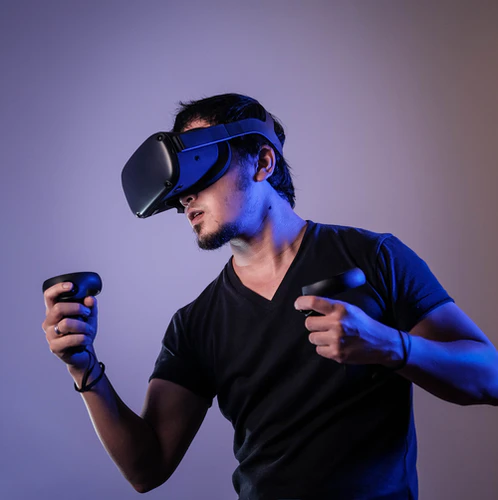
#4. Mobile remains front & center
Mobile will keep on being the spine during the time spent improving the innovation behind the cutting edge inn experience. A marked inn application considers two-route correspondence among visitors and the property: visitors can get to any inn administration and other data whenever (for instance, request room administration supper while they are as yet in the spa), while the lodging can utilize the application to connect with visitors at the right second, sending significant warnings, updates, offers, and cautions.
#5. Business intelligence (BI)
BI is the act of changing Big Data into usable data. All in all, it alludes to the utilization of human-made reasoning and AI to decipher your inn’s Big Data into solid and sensible data.
On account of lodging business insight, income supervisors would now be able to anticipate whether the get will go up or down and settle on business choices depending on this data. It did not rely entirely on authentic information or the director’s hunch.
The drawn-out computerized change of your lodging should have as its target the option to settle on choices with genuine and solid information. This will enlarge the lodging’s essential vision. This change will mean going from being a lodging that settles on choices dependent on chronicled information to one that makes them dependent on nitty-gritty information-driven expectations of things to come.
Final Thoughts
Regardless of whether it is making a savvy room or executing AI-driven calculations, development is rarely straightforward. All the more so if center parts of the lodging experience are being referred to. To help lodgings put forth intense initial phases in their change attempts, we have accumulated our development chiefs for an online class to share novel experiences and genuine contextual investigations of Digital Transformation in hospitality. The online course will occur on July 18, and you can enlist for it here. Our chefs will discuss savvy rooms, blockchain-based faithfulness programs and develop DT patterns and use cases in the accommodation business. The progressions that are approaching over inn administrators will not be challenging to execute. At the same time, at last, advancement is consistently a chance, not a test.



